
UK government gives the nod to secure Samsung KNOX devices
Public sector workers in the UK will soon be able to use Samsung handsets after the UK government gave the greenlight to devices running Samsung KNOX. The Communications and Electronics Security Group (CESG) tested the KNOX platform and the government has now published End User Devices (EUD) Security Guidance for Samsung KNOX on certain handsets and tablets. It's not clear whether this paves the way for a new wave of BYOD for government workers, but it is certainly a possibility.
Samsung is pleased with the announcement, and Injong Rhee, Senior Vice President of KNOX Business, IT and Mobile Communications Division, says "Samsung devices with KNOX are already extensively deployed globally across the private sector but now with this significant recognition, government agencies across the UK will be able to adopt Samsung KNOX enabled Galaxy smartphones and tablets setting the scene for other governments to follow".
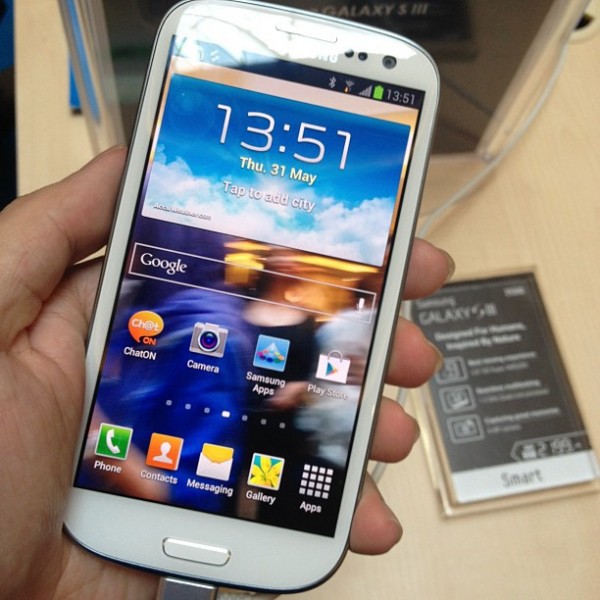
No KitKat for Samsung Galaxy S3 owners in the UK
We've got some disappointing news for those S3 owners who've been holding out with their fingers crossed for an update to Android 4.4, as KitKat is simply not going to happen on the international version of the Galaxy S3 (and the S3 Mini).
Previous rumours had indicated that UK owners of the S3 were going to get KitKat, speculation which was underlined by the fact that over in the US, the upgrade has been confirmed and is indeed about to roll out.
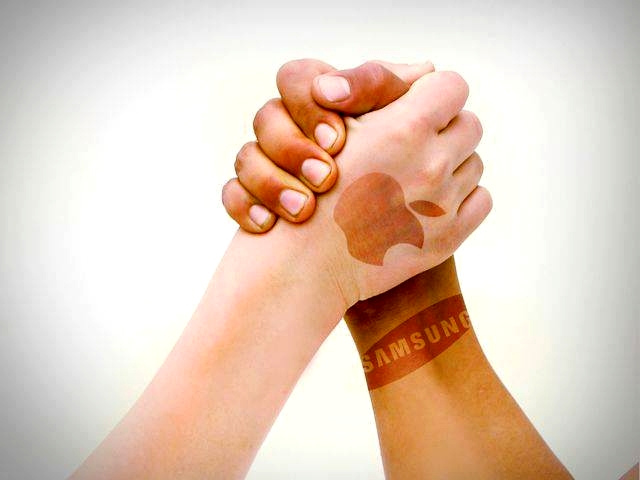
Apple iPhone and Samsung Galaxy owners won’t switch brands
Samsung and Apple don’t have to worry about users defecting to each other after a new survey suggested that other manufacturers like HTC and Huawei could take advantage of the gap.
Qriously, a London-based startup, surveyed a sample of 2,440 existing iPhone owners and the same number that own Samsung smartphones in order to ascertain how loyal the two sets of consumers are to the respective brands.
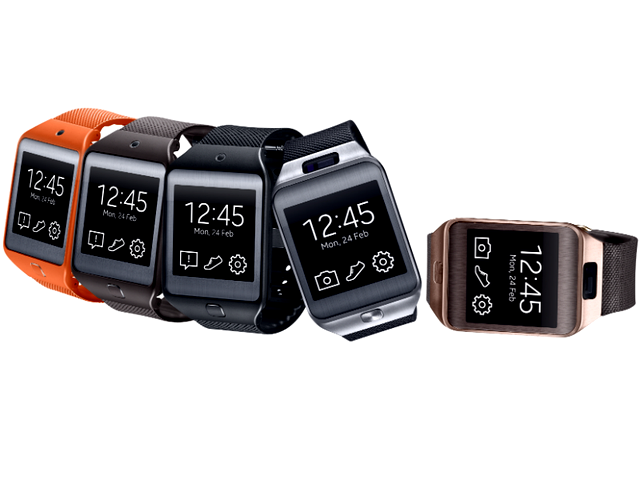
Samsung's 'Gear Solo' smartwatch could let you make calls without a smartphone
Samsung could put a SIM card inside its next smartwatch so that customers without a Galaxy smartphone are able to step aboard the company’s burgeoning wearables bandwagon.
Not content with its current smartwatch offering, the Gear Solo will offer owners the chance to have a device that has its own SIM card slot and allows it to connect to a mobile network without the need for a smartphone connection.
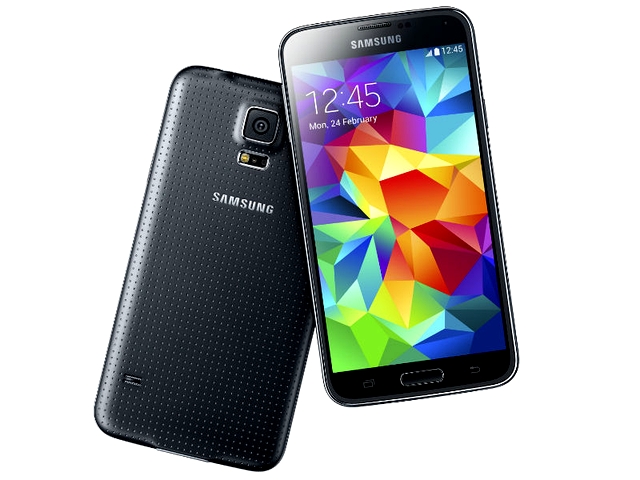
Samsung design chief replaced following Galaxy S5 disappointment
Samsung has a new man in charge of its mobile design team, following criticism of its new Galaxy S5 flagship smartphone.
Chang Dong-hoon will be replaced by Lee Min-hyouk, who was the vice president for mobile design, Reuters reports. Samsung didn't have any comment to make about the move, though apparently Chang Dong-hoon offered to resign himself last week (likely under pressure by the sound of things).

Samsung Galaxy S5 gets down to business
Businesses want to have a certain level of control over the smartphones their employees bring into work environments. This means vendors which cater to these kind of needs, through dedicated management tools and software designed to isolate personal and work content, are more likely to get on their good side, and grab significant enterprise market share in the process.
South Korean maker Samsung offers a BYOD-friendly solution that is meant for its top Android devices. Called Knox, it received two major revisions, the most-recent of which was unveiled at MWC 2014 in February, since its introduction more than a year ago. It has been made available for devices like the Galaxy S4 and Galaxy Note 3. And, today, Samsung announced Knox (albeit in its latest iteration, version 2.0) also greets the Galaxy S5.

The most popular stories on BetaNews this past week: April 27 -- May 3
Security news a-go-go once again this week, starting off with a massive security flaw that was discovered in Internet Explorer. The problem affects everything from Internet Explorer 6 to 11, but it was Windows XP users who were particularly at risk due to the fact that Microsoft has ended support for the operating system and is releasing no more security patches. At least that was the case before this problem came to light, causing the company to change its mind and give users one more hit of update goodness.
While Microsoft's latest security whoopsie did leave Microsoft licking its wounds a little, there was cause for celebration for OneDrive for Business users as storage was boosted to 1TB -- and the cloud is becoming ever more important with predictions suggesting 50 billion online devices by 2020. Microsoft was also able celebrate finally having a launch date for the Xbox One in China. In other security news, AOL email service was hacked leading to the leaking of customer data and a new report suggested that just about every website dealing in pirated material is also home to scams and/or malware.
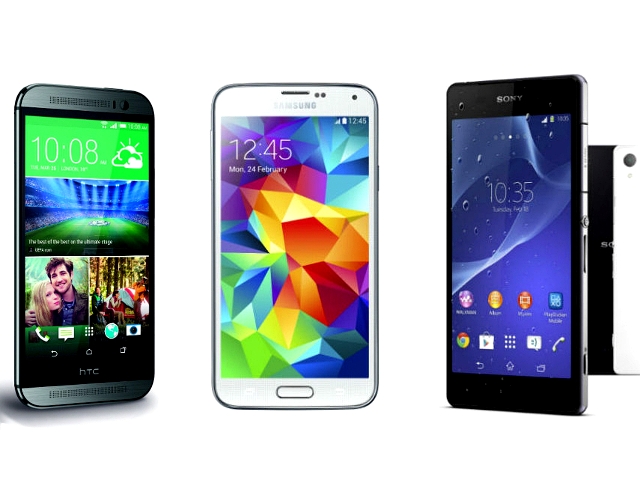
Samsung Galaxy S5 vs Sony Xperia Z2 vs HTC One M8
Over the last few weeks Samsung has launched its Galaxy S5, Sony has revealed its Xperia Z2, and HTC has released the One M8. Each of these top flight handsets has its own plus points, and the uniting factor is that they are all vying for your attention if you want to be at the cutting edge right now.
Of course, that will change soon enough. We’re hearing about a possible HTC Prime, and Sony has recently started launching a second flagship handset in the latter part of the year. And other makers will come along with new top of the range phones, too. But for now, those who are after the very best phone they can get have a three way choice. So, is there an obvious best or an obvious worst phone among this trio? Let’s find out.
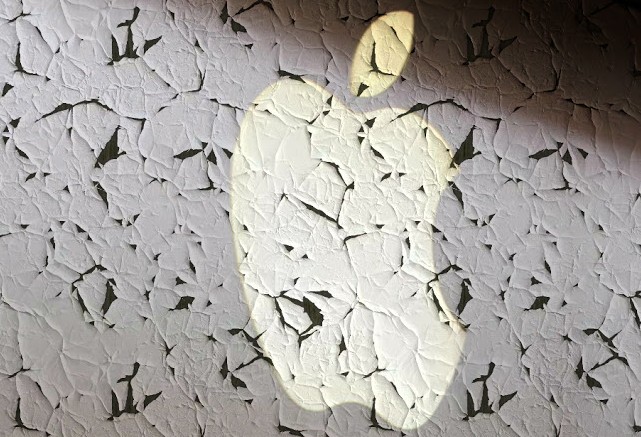
Apple makes MacBook Air less appealing
The significance of today's MacBook Air refresh: What is and what isn't. I focus specifically on the smaller model. What is: Slight processor refresh, but lower entry price -- $899 for the masses and $849 for education, both 100 bucks less than yesterday. What isn't: Retina Display screen resolution.
From the perspective of physical size, screen dimension (11.6-inches), resolution (1366 x 768), Intel processor, and core benefits, the lower pricing brings MacBook Air closer to Chromebook, particularly for school purchasers. Both computers compete for educational buyers, and Dell, HP, Lenovo, and Samsung all target the market with compelling Chromebooks. As differences diminish and price gaps lessen, the Apple becomes less appealing by comparison. Stated another way: New pricing shines fresh spotlight on MBA, which similarities to lower-cost Chromebooks are greater for school year 2014-15.

Samsung introduces Galaxy K zoom, a proper Nokia Lumia 1020 competitor
There is not even a shred of doubt in my mind when saying the best camera smartphone is the Nokia Lumia 1020. Aside from packing an impressive sensor in a relatively small body, it is the only device of its kind that was actually designed to be usable daily as a normal smartphone.
Its main competitor, if it can be called that, has been the Samsung Galaxy S4 zoom. Put kindly, it is the unholy union between a point-and-shoot camera and an Android smartphone. It is far, far, far from being remotely pretty and as such, mockery ensued. Thankfully, Samsung has gotten the message, as its successor, the Galaxy K zoom, is more like the Lumia 1020 and less like something only Frankenstein would appreciate.
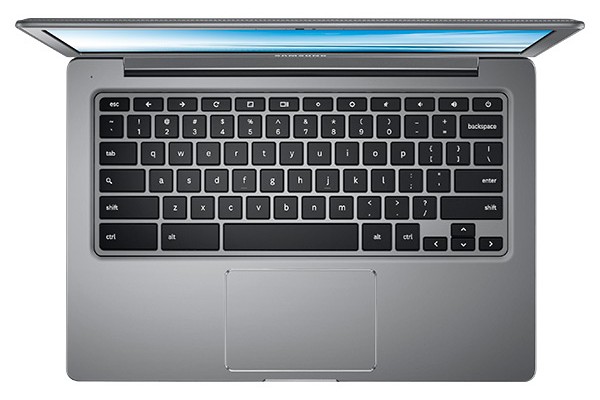
Samsung Chromebook 2 is delayed
Sorry, but I can't tell you why yet. I have this statement from Samsung PR about 13.3-inch Chromebook 2, in response to my inquiry: "The product is now shipping at the end of May". That puts the computer in the channel a month later than planned. I have asked for a reason but don't expect to get one.
Samsung unveiled Chromebook 2 in March, in 11.6- and 13.3-inch configurations. The company started taking preorders more than two weeks ago, offering a free case to anyone purchasing before April 27. I ordered one on April 8 from Amazon with delivery date of April 29, which put expected launch a day earlier. But then on April 10, Amazon emailed that my new delivery date would be May 2 and the website indicated availability on the 1st. Last week, Amazon changed the date to May 15 and by the beginning of this week to May 29. Around the same time, Samsung stopped taking preorders of this model and the 11.6-inch white. The manufacturer still accepts preorders on the black, smaller Chromebook, for which Amazon lists May 7 release.

Amazon and Samsung launch custom Kindle for Samsung service
Not content with already having a Kindle app for Android devices, Amazon has joined forces with Samsung to launch Kindle for Samsung. The slightly unnecessary venture brings a new custom ebook service to owners of devices from the South Korean firm and launches on the Galaxy S5 immediately. Other Samsung Galaxy handsets and tablets will gain access to the app shortly afterwards, providing they are running Android 4.0 or newer. Of the millions of books and magazines that will be available through the service, more than 500,000 of the titles will be exclusives.
At the same time as the Kindle for Samsung launch, the two companies are also launching Samsung Book Deals. This enables Galaxy owners to obtain up to 12 free ebooks per year, making a selection from a choice of four each month. With the promise that "each book is chosen specifically for Galaxy smartphone and tablet users from a wide selection of prominent titles", there should be something for everyone.
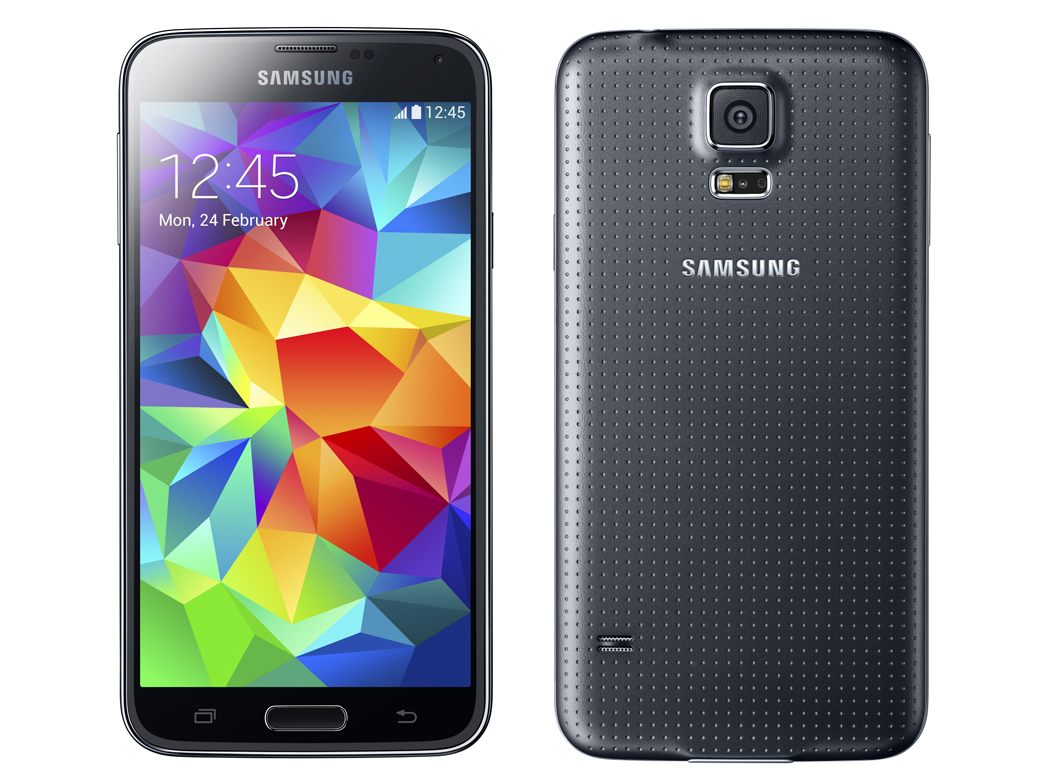
Samsung Galaxy S5 goes on sale
Announced on February 24 at the Unpacked 5 event, the Galaxy S5 is Samsung's new Android flagship smartphone. It officially launches today in 125 countries across the globe, that includes major markets like US, Europe and Asia.
The Galaxy S5, much like its popular predecessors, comes packed with new features. Samsung did not refrain from throwing everything but the kitchen sink at its new flagship. The highlight is undoubtedly the fingerprint reader, that gives users the option to swipe their fingers on the lower front side of the device to unlock it. It remains to be seen whether consumers will find it useful, but the fingerprint reader is one of the features that, so far, sets the new flagship apart from the pack.

These new Samsung Galaxy Pro video ads are awesome
Unlike other mobile device manufacturers, Samsung gets advertising and it also has the money to afford it. Remember the campaigns that pitted flagship Galaxy smartphones against Apple's competing iPhones? Those serve as a prime example of how effective Samsung can be when it comes to comparing its own products against those of the competition.
Well, Samsung is at it once again. This time around the company is showing its Galaxy Pro series slates against Apple's popular iPads and Amazon's Kindle, in four video ads which, once again, focus on major differentiating features. And Samsung is doing a very convincing job here by tackling the right areas, where its slates have a clear advantage.
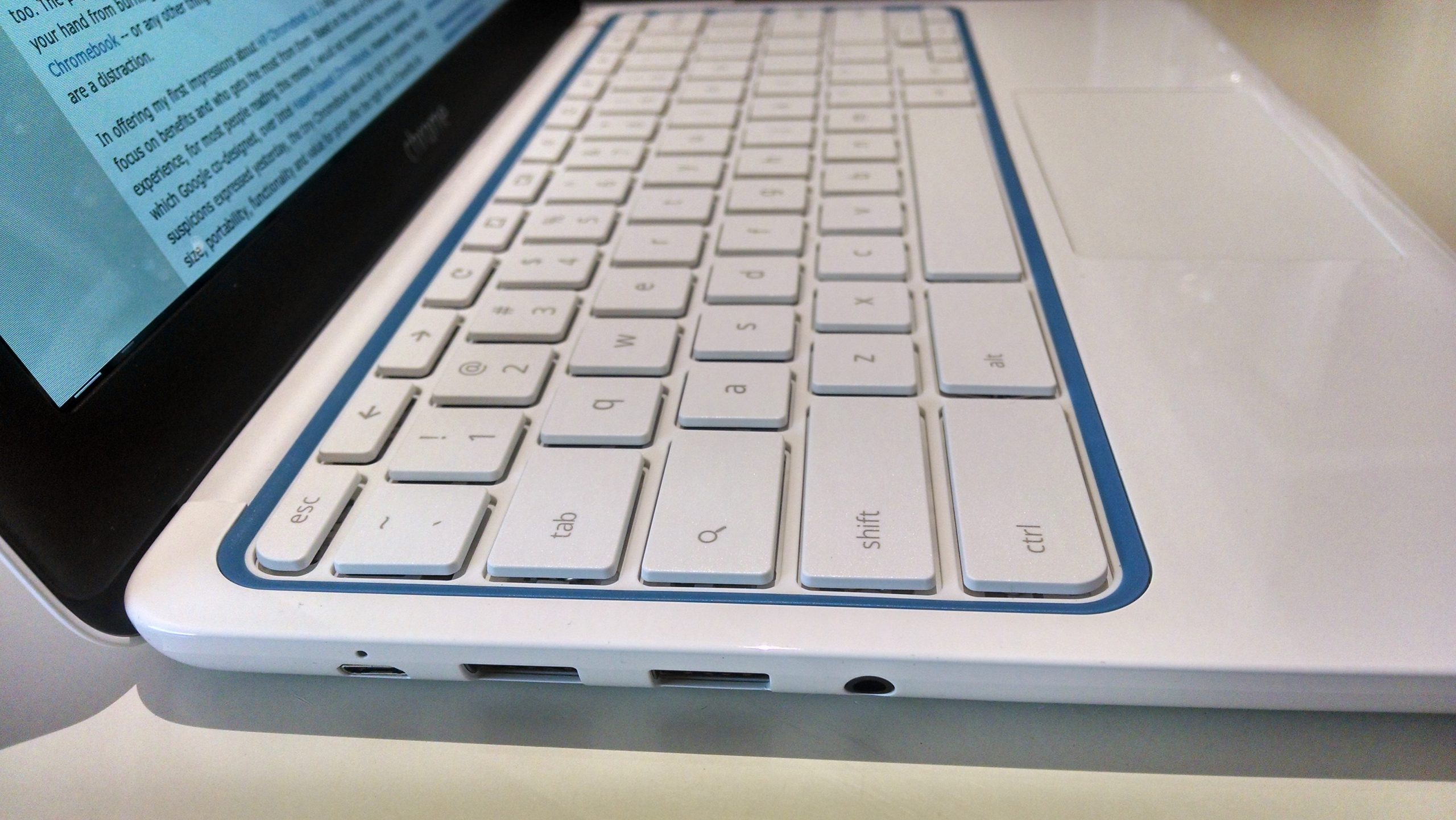
Hello, Chromebook!
Today Mihaita Bamburic bids "Goodbye, Windows XP!" Meanwhile, Wayne Williams walks down eXPerience memory lane. For good reason: This week, Microsoft pulls the life support plug -- following many, many, many delays. Henceforth, you use XP at your own risk, or forcibly march forward into the second decade of the 21st Century. You could follow Microsoft to Windows 8.1, or be truly courageous. Mac or Linux laptop are options, or you could go Chromebook. Yeah, you read right.
Here in the United States, Best Buy will trade in your XP clunker and give "minimum of $100 toward the purchase of a new Windows computer, Apple computer or Chromebook". The offer ends April 19, so hurry. The cash back will practically pay for a new Chromebook, which costs so little and does so much -- surely more than your XP wheezer. Someone from the Windows division once told me that O2, as in Oxygen, was one of the runner-up names for XP. How fitting. Your old machine has been living off oxygen for far too long. Pull the plug. I'll give you some reasons why Chromebook.
